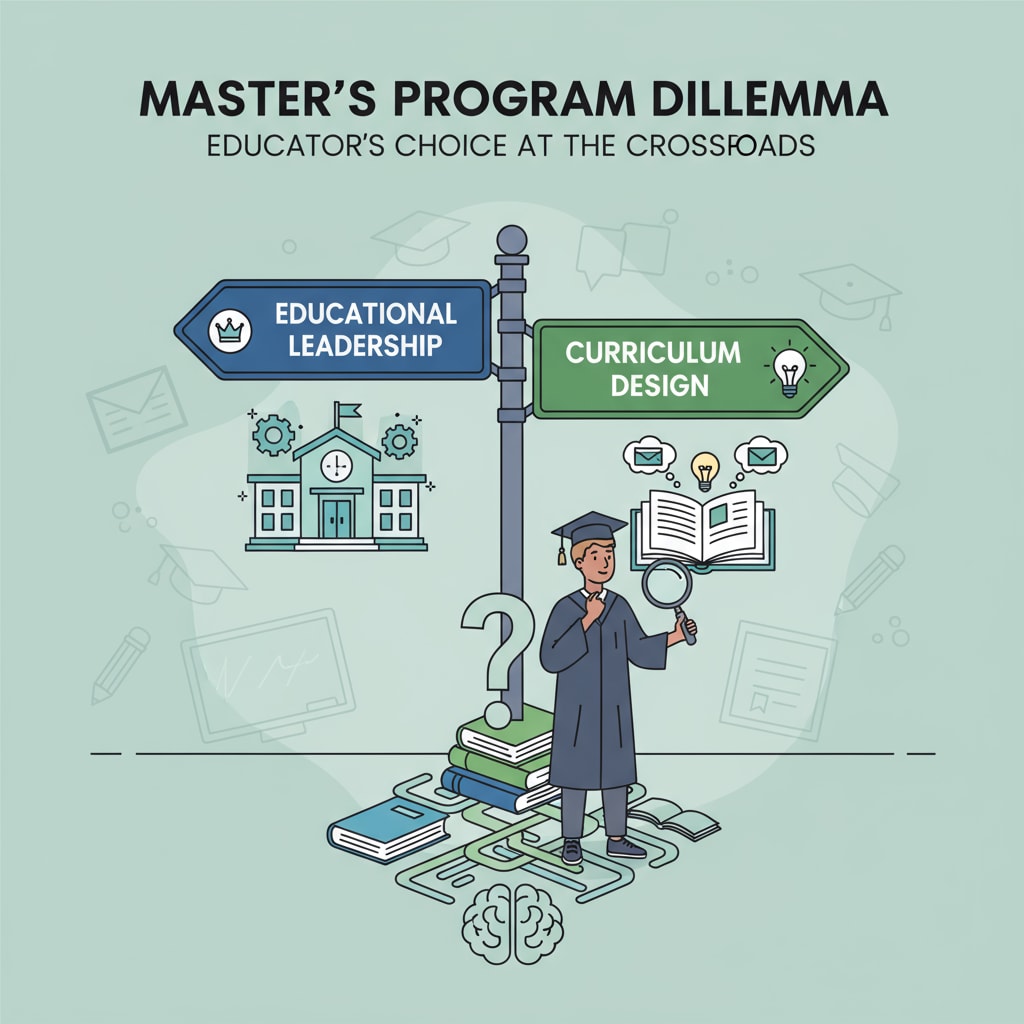Educational Master, Educational Leadership, Curriculum Design, Career Development are crucial aspects for educators when making decisions about furthering their studies. Choosing the right educational master program is not a simple task, as it involves weighing career aspirations against personal passions. For example, educators might be torn between focusing on educational leadership or diving into curriculum design. Understanding the nuances of these areas can help in making a more informed choice.

The Allure of Educational Leadership
Educational leadership offers a path that can significantly impact the overall educational system. Those who choose this direction often aim to take on administrative roles within schools or educational institutions. According to Educational leadership on Wikipedia, educational leaders are responsible for setting the vision, managing resources, and leading educational reforms. This career path provides opportunities to influence educational policies and shape the future of learning environments. For instance, a school principal with a background in educational leadership can introduce innovative teaching methods across the school. However, it also requires strong management skills, the ability to handle complex bureaucracies, and a broad understanding of educational systems.

The Appeal of Curriculum Design
Curriculum design, on the other hand, is centered around the creation and improvement of educational content. As defined by Curriculum on Britannica, it involves planning, developing, and evaluating courses and learning materials. Educators interested in this area are passionate about crafting engaging and effective learning experiences for students. They might work on developing new textbooks, designing online courses, or creating hands – on learning activities. The advantage of this path is the direct impact on student learning. For example, a well – designed curriculum can enhance students’ understanding and retention of knowledge. However, it demands creativity, in – depth subject knowledge, and a good understanding of educational psychology.
Finding the balance between educational leadership and curriculum design is essential. Some educators might find that they can combine elements of both. For example, an educational leader could use their knowledge of curriculum design to make more informed decisions about the curriculum adopted in their institution. In conclusion, when choosing an educational master program, educators should carefully consider their career goals and personal interests in the context of educational leadership and curriculum design. This balance will not only lead to a more fulfilling academic journey but also contribute to a successful and rewarding career in education. Readability guidance: Each section presents key points clearly. The use of examples helps to illustrate complex concepts. Transition words like ‘however’ and ‘on the other hand’ are used to contrast different ideas, making the text more coherent.


